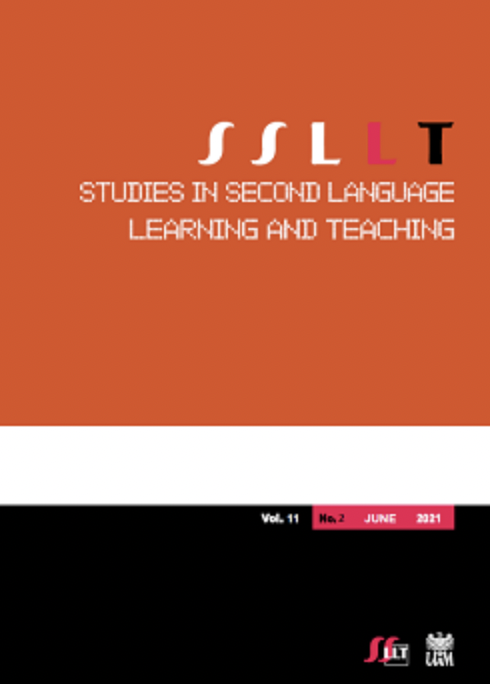Is learning really just believing? A meta-analysis of self-efficacy and achievement in SLA
Is learning really just believing? A meta-analysis of self-efficacy and achievement in SLA
Author(s): Julia Goetze, Megan DriverSubject(s): Language and Literature Studies
Published by: Wojskowe Biuro Historyczne im. gen. broni Kazimierza Sosnkowskiego
Keywords: positive psychology; individual differences; L2 achievement;self-efficacy;
Summary/Abstract: The positive psychology movement (Seligman, 1998) has contributed to the proclamation of a positive turn in second language acquisition (SLA) (MacIntyre et al., 2016). Within the context of individual differences, self-efficacy (Bandura, 1997), an individual’s judgment of their capability to achieve goals, has gained particular interest in language learning (e.g., Lake, 2013). The present study meta-analyzes a body of research that has investigated the relationship between second language (L2) self-efficacy and L2 achievement by exploring 1) reporting practices in this domain, 2) the strength and direction of the relationship, and 3) the effects of moderator variables on the self-efficacy-achievement link. A comprehensive literature search uncovered 37 studies, which contributed to a total of 40 independent samples (N = 23,050). The average observed effect in the sample was r = .46. A moderator analysis showed systematic variations in the effect size for learners’ first language, target language, proficiency level, and both self-efficacy and achievement type. We discuss our findings with respect to theoretical constructs and methodological practices and suggest implications for L2 pedagogy and future research into self-efficacy in SLA.
Journal: Studies in Second Language Learning and Teaching
- Issue Year: 12/2022
- Issue No: 2
- Page Range: 233-259
- Page Count: 27
- Language: English

